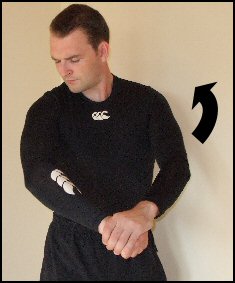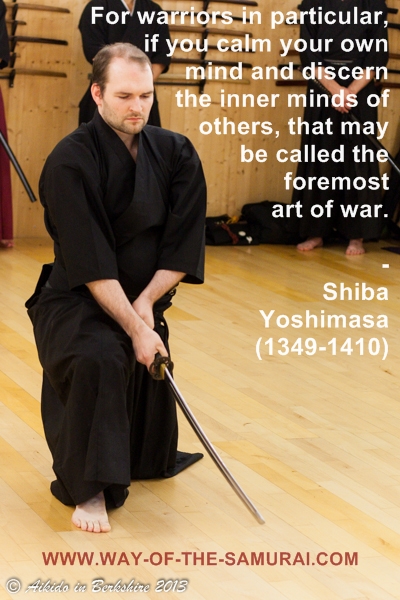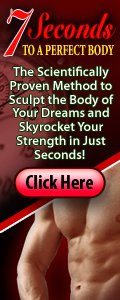The Four Pillars of Good Health
By Harnessing the Power of these 4 Basic Principles you can Ensure a Lifetime of Health and Happiness.
By Paul "Batman" O'Brien
B.A., N.C.E.H.S., Dip. Acu., Cert Clin. IMed., Dip. Adv. OBB, Dip. CHM, Pn1, PN-SSR, PN-NCA, M.AFPA., M.C.Th.A.
The Four Pillars of Good Health - By harnessing the Power of these 4 Basic principles you can ensure a lifetime of health and happiness. That's quite a claim, yet not only do I firmly believe this to be true, but this has been borne out time and again by TCM physicians and now we are seeing these same principles being endorsed by the medical profession and popular science. In fact, barring serious infectious disease, serious injury and accidental death according to TCM we are designed to last 100 years in good health with remarkable vitality using these 4 pillars.
"I've heard that in the days of old everyone lived 100 years without showing the usual signs of aging".
- Yellow Emperor's Classic of Medicine, trans. Maoshing Ni, Ph.D. Shamballa, 1995, pg 1
A question as to why this is, is the first question put to royal physician in the Nei Jing. And the answer to this problem is one that you will not be surprised about...
"They drink wine excessively like it was though it was water, indulge in excessively in destructive activities, drain their jing - the body's essence that is stored in the Kidneys - and deplete their qi.....They fail to regulate their lifestyle and diet, and sleep improperly. So it is not surprising that they look old at fifty and die soon after."
- Yellow Emperor's Classic of Medicine, trans. Maoshing Ni, Ph.D. Shamballa, 1995, pg 1.
Yep, 3,000 plus years ago people ate too and drank too much and didn't exercise correctly!
The Nei Jing goes on to outlines the key aspects in the prevention of illness and disease and lays out a path for maintaining excellent health.
So what are key aspects of good health?
The Four Pillars of Good Health
Within TCM and Japanese medicine, it has been identified that there are 4 pillars of great health.
They are:
- Diet
- Exercise
- Rest and Relaxation
- And a good mental attitude
Sounds simple doesn't it. And in a way it is.
However the moment one starts really thinking about this it becomes a problem -
Diet? Well which diet? Do I do South Beach, Atkins, Paleo, Slow Carb, Low Carb, Low Fat, Low Salt, Low Food? What diet should you follow? How many calories, are we counting macronutrients? GI?
Exercise? Well am I lifting weights? If so am I using 5x5, Pyramids, Supersets, Ladders? Should I be doing Crossfit, Tae-bo, Yoga, Pilates? Everybody out there has their own spin and own take just waiting to sell it to you. Just look at the rotating headlines of Men's Health Magazines - every issue the "NEW fastest most effective workout ever". I mean what was wrong with last month's?
Rest and Relaxation? Listen the TV is not relaxing. A good move or TV show is enjoyable - not relaxing. Same with computer games - it's all lights and sound, flashing and stimulating the brain. Music, dancing? That's all stimulation. Exercise - nope that's a separate category above, as it should be, again that's a form of stimulus and stress - beneficial stress sure, but still stress. Diet? Many people relax and unwind over food? And this can be and enjoyable sure, but it's not relaxing...so what's the answer?
Finally - right attitude, well that's controversial....very controversial. There are so many philosophies, religions, popular science and thought, hundreds of thousands of books written on the subject of "right attitude" to life. Which opinion is correct?
Well luckily, TCM has definite answers to each of these components and they overlay exactly with the principles taught in the traditional martial arts and funnily enough the current trends of the most successful people.
While exploring each of these is beyond a simple article, I'd like to share with you some key strategies for approaching each of these pillars and tell you how to learn more.
Diet

Diet is as simple and a complex as you want to make it.
Perhaps the most famous doctor of the Tang Dynasty, the Golden Age of Traditional Chinese Medicine, Sun Si-miao famously said, "when a person is sick, the doctor should first regulate the patient's diet and lifestyle. In most cases, these changes alone are enough to affect a cure over time".
In fact Sun Si-miao went as far as to say that, it was ONLY if the changes to diet and lifestyle were not enough should internal medicine (herbs) and acupuncture be utilised. In my clinic, I work on their diet from both an Eastern and Western perspective with EVERY patient. Acupuncture and herbs cannot have their fullest expression without sorting out the nutrition. It is often said that one "cannot out train a bad diet". One can also not enjoy full health and freedom from illness if they are eating foods that promote illness, disease and disharmony within the body.
The truth is that healthy eating is a simple matter. And I have found nothing as effective as Traditional Chinese Medicine's approach to nutrition.
In fact, I can some up in the entire Chinese Medical approach in 5 simple points
- Eat plain, simple foods mostly of vegetables and lean meat
- Make everything warm, soupy and easy to digest
- Eat to schedule, not demand.
- Eat till your 70-80% full
- Sip a warm ginger tea after each meal.
Do that, and your 90% of the way there.
You don't need complicated diets. You don't need insane restrictive rules. Most people in fact do not need fancy, unique, unusual or extreme diets. These basic insights into how the stomach works and how energy is broken and down and processed are simple and easily applicable.
That said, once you have the basics down, you can then use your food to treat and more importantly prevent many illnesses and diseases. This requires a deeper understanding of how the body works and why, along with a knowledge of the different patterns of illness and how to treat them with food.
Exercise

The traditional method of exercise I recommend is Isometrics. It's been around since the beginning of man and it's principles and teachings have been encoded into every martial art in the East - and the martial arts of course, everything from softer Chinese Tai Chi to Harder Japanese Jujutsu contain these secrets of strength development. Exerise moves the Qi and Blood and supports and nourishes the body and organs. It is vital for the development of energy and essence.
Exercise is a type of functional activity, and I'm sure you're heard the expression "functional fitness" - it's one of those meaningless buzzword's but in the context of TCM this makes sense. Keeping in mind the concepts of Yin and Yang, exercise and Isometrics are Yang function to Nutrition's Yin form.
Many of the exercises I teach, such as the vacuum and stomach flattener in Perfect Body work more than just the muscles; they nourish and restore the internal organs too. But in TCM all things, including exercise must be kept in balance.
Too much exercise can damage the body, it leads to the overconsumption of fuel and the body's resources. One must rest and relax in equal parts. If you've read my article on "The Success Routine", you'll note that I exercise and rest pretty much 50/50. By contrast if there is too little exercise, the food and ingested substances will not be needed and not transformed by the stomach and the spleen. Creating, in turn, damp and phlegm, gumming up the works so to speak and blocking the system.
Rest and Recovery

If there is inadequate rest, hyperactivity, of a physical, mental, or emotional nature will consume too much substance leading to an overheating of the body, inevitably causing burnout. The well will have run dry. This means that your nutrition must be balanced by adequate activity and by rest/relaxation.
I'm a big fan of meditation, though meditation is often misunderstood or taught incorrectly. It is not about emptying the mind, and thinking of nothing. It is focused awareness. What we refer to as Zanshin, the lingering mind, in Japanese martial arts. An awareness, a mindfulness of the every day. Other Eastern techniques involve the creation and study of mandala's complicated images that overwhelm and fascinate the mind.
I highly recommend water immersion and focused breathing. I use a method called tanden breathing. But that's a more advanced method.
You can start simply by drawing a warm bath, hanging a do no disturb sign on the door, keep the place quite and gently lit and breathe. In and Out and just focus on fully exploring and enjoying the breath. If the mind wanders, just come back to the breathing, no re-crimination, no ager, just come back to the breath. Of course, you can practice this focused breathing for 5 minutes anytime and get great benefit, but you can really enhance that relaxation by spending 1 minutes soaking in the tub and doing it.
Right Attitude
Right attitude - now this is both A VERY simple and complicated topic .
What I am going to share with you next may be difficult for you - but, this is, I feel THE most important aspect of Chinese medicine, oriental philosophy and the most important truth of both diet, martial arts and life itself. If you master this next thing - there is literally nothing you cannot do.
Now, this article is already running to 4 pages in length...so I'll have to stop in a moment, but before I do let me leave you with some idea on the right mind, what we call Mushin in Japanese martial arts.
One of my teachers, Bob Flaws, expressed this beautifully -
"When one understands that the spirit is inviolable, essentially unharmable, and indestructible, one's experience, whether of good or bad, becomes like a movie projected on a screen. The movie is not the screen and no matter what drama is enacted on the screen, the screen is not harmed or affected. If one can apprehend this, then, in Chinese, one can say that spirit apprehends the essential emptiness of experience. However, if one then becomes attached to this concept of emptiness, that itself can cause an obstruction to the free flow of reality. Therefore, it is further said that emptiness must also be understood as nothingness or no-thing-ness. When one does, this is the absolute good mental attitude which is ultimately healthy".
Heavy right? Don't worry I'll explain exactly what this means and give you practical points on how to develop and apply this mindset in a future article. For now though, just play around with it. Try and detach yourself from the emotional immediacy of the moment. You're not the film, you're the screen.
Here's what I want you to do next.
1) Commit to following the 5 principles of Chinese nutrition I listed above for the next week. See how you feel. Do it honestly and you'll notice a BIG difference.
2) Commit to doing at least 5 minutes of Isometrics every day. (Need a program to follow - check out Perfect Body)
3) Commit to spending 5 minutes focusing on mindful breathing
4) Sign up to this VERY IMPORTANT early notification list. I've spent the last 7 years putting together the single most comprehensive diet, exercise and lifestyle management program in existence. It spans over 30 volumes and teaches nutrition, injury and illness recovery, rehabilitation, strength training, body sculpting, weight loss, muscle building, cardio vascular fitness, stretching and flexibility, time management, philosophy and more.
I'll be releasing the first volume shortly and this is NOT something you want to miss out on. And there's a catch . You want to be on the list to find out what that is. Because you won't be able to get this information without being on that list.
Sign up for free below.










New! Comments
Have your say about what you just read! Leave me a comment in the box below.